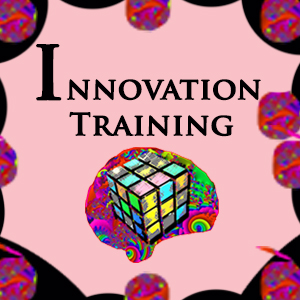 Invest in Your Innovation Capacity
Invest in Your Innovation Capacity
In my various consulting engagements I have learned not to take much for granted. I thought by this year in history (2016) everyone in the business world would have a clue as to how to do ideation (aka brainstorming) properly. Wow, not even close. It’s a glaring missing ingredient in staying competitive. It’s a key to growth and it’s routinely done poorly.
The art and science of developing valid business ideas has a formula. There are variations but at the heart of it you have: Problem Framing, Ideation, Idea Development, and Actions. Within each of those areas there are tools and techniques. If you know them, and use them in the context of an innovation project — you will be more effective. If you don’t, well, you might get lucky, but generally, you will fail.
I don’t understand why more companies don’t invest in building innovation capacity. It might be the biggest bang for the buck there is in terms of training. Better skills would mean: Better Strategy, More Innovation, and Faster Growth. I’m not exaggerating. If you read my post here and feel like this would make sense — here are my course offerings. Get in touch for more details.
To be positive: There is a Huge Opportunity to Improve and Get Near Term Results with innovation training. Training in basics like brainstorming, but also more advanced concepts like innovation cycle management, frameworks, and facilitation of innovation teams and projects. Trend Mash-Ups like those done with the KILN IdeaKeg system promise breakthrough results. Yes, you can train people in all these things and you will get immediate results. Long term results could be breathtaking.
To be negative (and also realistic) without these skills you could go the way of Radio Shack, Blockbuster, and Kodak, etc.
Specifically, what am I talking about? Well for one, groups I’ve witnessed routinely start ideation with vague questions — which pretty much dooms the session. Wide open questions will get you thousands of ideas — and mostly bad ideas. Suggestion boxes and poorly organized idea campaigns don’t work. Focused questions will get you fewer ideas, but they will be of higher quality. It’s not rocket science, but getting the question right requires training. Challenge Mapping might be the most effective problem framing tool ever invented and yet few people really know it. You can learn it in about an hour. Why wouldn’t you learn it?
Another example: charting ideas on a flip chart, well, that’s 1951 brainstorming. And that’s what a lot of people still do. It’s so much better to use Post-It Notes. It’s also better to use virtual systems over a few weeks of ideation time. It’s also better to use techniques like BrainWriting, or even more advanced tools like BrainWalking. BrainWriting alone can improve ideation by leaps and bounds. It’s a technique that can be taught in about 10 minutes. In one day you could learn dozens of tools like BrainWriting –– all ways to put your foot on the innovation accelerator, again, why wouldn’t you invest in learning the tools?
Story is another huge opportunity in terms of learning — for branding, messaging, marketing, and even just understanding who you are. Story has a first cousin, improvisation, which is an art form that can be directly applied to complex problem solving — if you know how. And yes, this can be trained. And no, you don’t have to be funny.
What might be even worse is that many organizations don’t have the faintest idea how to crank up and sustain an innovation program.
- They don’t know how to get a mandate from management — or why that might be important.
- They don’t understand how to organize a team and why rebels and outsiders can really help.
- They don’t know how to lead and facilitate a team once formed — and that facilitation skills alone accelerate innovation.
- They have some idea of brainstorming but it’s often ineffective, and, not done within any kind of innovation plan or cycle.
- And worst of all — there are no innovation projects actually happening. Without projects — Nothing — will happen.
I’m in the business of offering this kind of training, so please get in touch if you have this need. I do courses for organizations from as short as three hours, and can get an awful lot done in one day. My two and three day workshops could change your organization in a dramatic way. I also do public training courses where you can register even just one person to learn these skills. In fact, I have a public course scheduled for February in Denver. Sign up! It would be hard to find a more affordable and effective training course!


